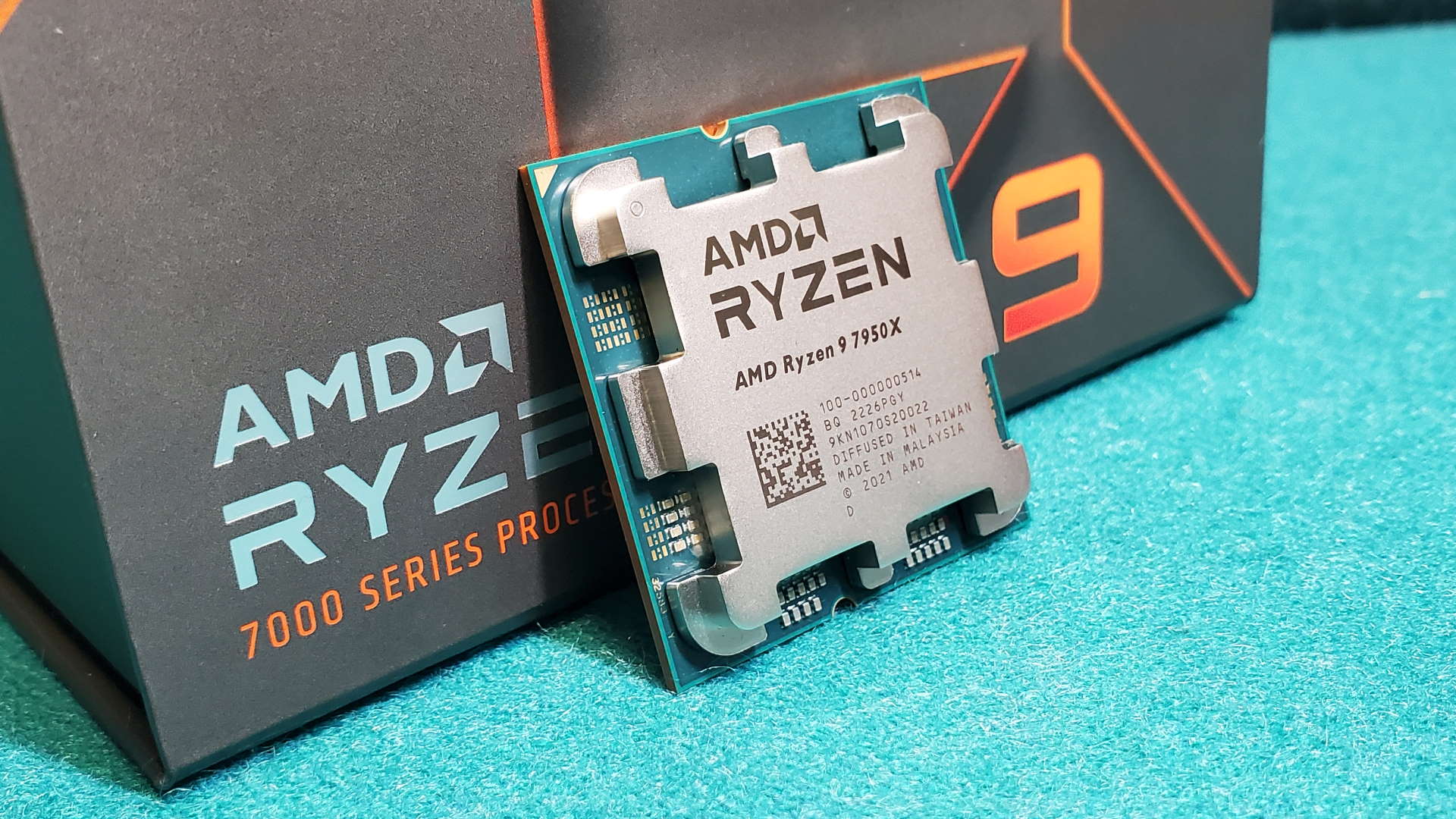AMD reportedly cutting CPU production for its new Zen 4 chips
Suggestion is that low PC demand and "poor reception" for the Zen 4 CPUs is to blame.

There is a report going around that AMD has reduced the production volumes for its latest Ryzen processor range "amidst a decline in the PC market and the overall poor reception of the AM5 platform."
We're used to gaming hardware disappearing from retail the instant it's released. Whether that's the latest graphics cards, such as the new Nvidia RTX 4090 or AMD's RX 6800 XT of days gone, or a new games console. We expect there to be a mad rush on stock, shelves to run dry in a matter of minutes, and for it to be tough to buy the latest best new techie thing for ages.
Unless you're talking about the new AMD Zen 4-based Ryzen processors, that is. The new AMD CPUs launched relatively recently, and we've been pretty positive about both the Ryzen 9 7950X and Ryzen 7 7700X chips. But unlike most new tech launches since the pandemic began, it's surprisingly easy to bag yourself a new 5nm Ryzen in whatever flavour you most desire.
There is an accepted decline in PC sales this year, and last week's third-quarter earnings report for AMD showed how much of an impact it has had on the company's bottom line with revenue falling short by $1.1 billion. Towards the end of both a CPU and GPU generation, that's to be expected on the gaming hardware side, but total PC sales have dropped, too, below the pre-pandemic levels.
AMD cited the weak PC market and large outstanding inventory of product as the reasons behind its recent revenue miss. And it's against this backdrop that WCCFTech is suggesting it's learned the company is cutting Ryzen 7000-series production.
The piece is also suggesting that it's also partly because of an "overall poor reception of the AM5 platform" that this is happening. Given there is an abundance of chips on the shelves I guess you could make that argument.
But with an overall slowing of the PC market that is leaving a bunch of stock out in the channel it would be a foolish company indeed to keep production at the same levels without taking note of a changing hardware environment.
The biggest gaming news, reviews and hardware deals
Keep up to date with the most important stories and the best deals, as picked by the PC Gamer team.

Best CPU for gaming: The top chips from Intel and AMD
Best gaming motherboard: The right boards
Best graphics card: Your perfect pixel-pusher awaits
Best SSD for gaming: Get into the game ahead of the rest
AMD's new processor platform was always going to have a slower start than recent Ryzen CPU launches, too. It requires not just a new chip, but a new motherboard and likely new DDR5 memory, too. I mean, I doubt many people are upgrading from an DDR5-based Alder Lake system. Especially given the similar gaming performance.
A new graphics card, on the other hand, can be an easy drop in upgrade that will instantly benefit practically any system. That makes it a far wider purchase base for day one. When you're switching to a whole new platform you're more likely to be waiting for a specific time to make your upgrade, not just when it releases.
That and there's a whole new Intel CPU release on the horizon with Raptor Lake, too.
So, looking at the day one sales of such a setup is perhaps a bit disingenuous. We'll see whether AMD sees its new chips as struggling when Raptor Lake does launch, and whether AMD changes the pricing of its own competing chips in response. In the end, money talks, and any Zen 4 pricing change might say a lot.

Dave has been gaming since the days of Zaxxon and Lady Bug on the Colecovision, and code books for the Commodore Vic 20 (Death Race 2000!). He built his first gaming PC at the tender age of 16, and finally finished bug-fixing the Cyrix-based system around a year later. When he dropped it out of the window. He first started writing for Official PlayStation Magazine and Xbox World many decades ago, then moved onto PC Format full-time, then PC Gamer, TechRadar, and T3 among others. Now he's back, writing about the nightmarish graphics card market, CPUs with more cores than sense, gaming laptops hotter than the sun, and SSDs more capacious than a Cybertruck.

